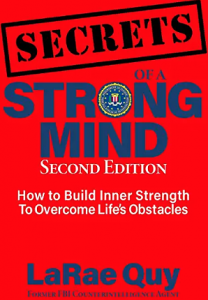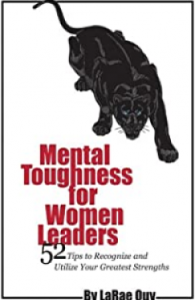As I look back over my early career, I wish I’d taken more risks. I wish I’d been a little braver in my choices, perhaps had more confidence in my ability to land on my feet when confronted with the unknown.
If you’ve thought the same thing, you’re not alone. You don’t take a risk because you’re cautious and play it safe. In other words, you’ve settled for the status quo.
If that sounds like the definition of a wimp, you might be right. To be fair, however, our brains are wired to be risk-averse. Our aversion to risk kept us safe through the caveman years and probably saved our lives a couple of times through our college years. What we forget, however, is that not every challenge is a risk to our life.
A History Lesson
The Old Testament of the Bible tells the story of a young man who decided to take a risk. His name was David, and he was a sheepherder who led a very predictable and ordinary life. He might never have discovered his greatness if he hadn’t taken a risk and stepped into the unknown.
The Philistine army had gathered their troops for war against Israel. The two armies camped on opposite sides of a steep valley. Every day for forty days a Philistine warrior named Goliath broke out from the front line and challenged the Israelites to fight. Goliath was reported to be a giant of a man who wore full armor. The Israelites fell back in fear when they saw the huge form of Goliath. The odds were against them.
Described as a runt by his own father, David’s job was to run back and forth from his sheep herd to bring news to his father of his brothers who were on the Israelite battle line. As David approached the battle line, he asked, “What’s in it for the man who kills the big ugly Philistine?”
He learned that King Saul offered a huge financial reward. In addition, he would give his daughter in marriage to whoever killed Goliath. David decided to take a risk and beat the odds. He said, “I’m your man!”
The runt of the litter takes on the giant. We love stories about the underdog who musters the courage and confidence to find a way to beat the odds. Follow David’s example and take a risk—the odds might be better than you think:
1. Master A Skill Set
David took a risk because he had never fought in battle as a soldier. He had other experiences, however, and leaned into them to help him in this situation. David knew how to use a sling and perfectly weighted stones which he had used to protect lambs from large and strong predators like lions and bears. He was prepared to use those same skills to protect the Israelites. It took years of practice, but he never became distracted from learning the skills he needed to become a master of his trade.
From an outsider’s point of view, the skill set possessed by this young boy could not help him defeat the obstacle before him. David stuck with what he knew best and used those skills to help him beat the odds.
How To Make It Work For You: Mastery is not a function of genius or talent. It is a function of intense focus applied to your area of expertise. Identify your area of expertise. Just because someone else doesn’t believe your skill set is needed to overcome an obstacle, it doesn’t mean you can’t find a way to apply those skills to help you beat the odds.
2. Acknowledge Weaknesses
The soldiers laughed at David because he wasn’t a trained soldier. The first thing they tried to do was turn David into one of them. They suited him up in their armor and gave him a sword. But David wasn’t a soldier, had never trained as one, and never wanted to be one. He said, “I can’t fight in this because I’m not used to it.” The techniques of a soldier were not his own, and he was wise enough to acknowledge what he didn’t know so he could focus on what he did.
Many of us focus all our attention on what could go wrong, and that’s not a bad thing. However, if we fail to focus on what can go right, we miss the opportunity to improve our odds. When we look at what we can bring to the situation, we take a risk that is smarter because we’ve put our strong foot forward.
How To Make It Work For You: You will excel only if you maximize your strengths and stop trying to fix your weaknesses. Don’t ignore your weaknesses but acknowledge them so you are better able to manage them. This allows you to free up time and focus on developing your strengths.
3. Start With Small Wins
David met Goliath on the battlefield with a sling and five smooth, carefully selected stones because those were the tools of his trade. He knew those stones had power because he’d used them before—to kill lions and bears. David might not have been a soldier, but he knew a thing or two about a strong arm and good aim.
While he hadn’t stood before an obstacle this big before, this was not the first time he’d dealt with a problem. He started with small wins as he protected his sheep from predators. Those small wins gave him the confidence to take a risk and defeat Goliath.
How To Make It Work For You: If you need to take a risk, you create better odds for yourself if you experiment beforehand. Intentionally place yourself in situations where there is risk involved so you know how it feels and won’t panic out of the gate. Experiment with how you’ll respond rather than rely on a knee-jerk reaction.
4. Adapt To Your Circumstances
While others considered David an underdog, he understood how to adapt to his circumstances. It meant he would need to take a risk, but since he had defeated other enemies, all he needed to do was remind himself of his past wins. David had mental toughness. One aspect of mental toughness is the belief that you can adapt to your circumstances rather than believing your circumstances will change.
If we don’t have confidence in ourselves, we will underestimate our ability to handle risk. When this happens, confidence devolves into self-doubt and the downward spiral doesn’t end until we reach the bottom. If we’re confident, we know that we’re able to accomplish the things we set out to do.
How To Make It Work For You: If you’re confronted with a roadblock, adapt to your new circumstances. Re-evaluate your initial strategies. Keep your mindset flexible and agile as you look for new ways to move ahead. The key is to always move ahead.
5. Press Into The Unknown
According to the Biblical account, “David took off from the front line, running toward the Philistine.” David took leadership of the situation when he broke the pattern of the challenge. He moved toward the threat and pressed into the unknown.
The closer Goliath came, Davis found more ways to defeat the giant. He saw a small gap in Goliath’s armor that was not visible from a distance. David reached into his bag and slung one of his stones at the gap in the helmet that protected Goliath’s head. Once struck on the forehead, the giant fell down to the ground. When the Philistines saw their hero was dead, they turned and ran.
How To Make It Work For You: To increase safety, move toward the unknown—only when David moved closer to the threat was he able to see where and how to strike. Often, opportunities that can not be seen from a distance are made visible only when we press forward. Our chances of success increase when we leave our place of safety and move toward our challenge.
© 2018 LaRae Quy. All rights reserved.
You can follow me on Twitter, Facebook, Instagram, AND LinkedIn
Are you mentally tough? Take this evidence-based, FREE Mental Toughness Assessment
Check out my new online training program at www.SecretsOfAStrongMind.com
Get my new book, “Secrets of a Strong Mind (second edition): How To Build Inner Strength To Overcome Life’s Obstacles”
Author of “Mental Toughness for Women Leaders: 52 Tips To Recognize and Utilize Your Greatest Strengths”






We’ve been talking a lot in our house about taking risks. Interestingly, we talked about David and Goliath this weekend too. It’s easy to see the threats, it’s up to us to see the possibilities through the fear. Look forward to sharing this with a few people I know. 🙂
Also, in a few weeks, we’ll be heading to the Valley of Elah and Elah stream where David picked up the pebbles hat he used to take down Goliath. I’ll bet I think of you and your post too.
Alli
I loved how you were able to weave the David and Goliath story into the power of taking a risk. We all feel like David’s at different points and our success depends on our ability to think on our feet and be creative. As a consultant I have been up against larger agencies competing for different opportunities but I always try to share why my unique strengths will be a better choice for a client.
Great post LaRae!